Rosa Brooks Quotes & Sayings
Enjoy the top 17 famous quotes, sayings and quotations by Rosa Brooks.
Famous Quotes By Rosa Brooks

It takes a whole government to really screw up a war. A dollop of American hubris goes a long way too. — Rosa Brooks
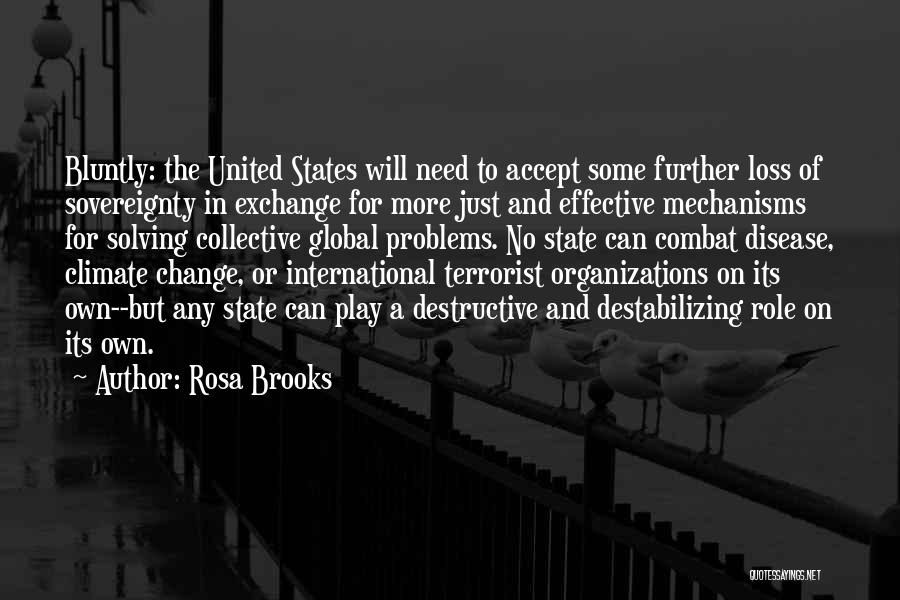
Bluntly: the United States will need to accept some further loss of sovereignty in exchange for more just and effective mechanisms for solving collective global problems. No state can combat disease, climate change, or international terrorist organizations on its own--but any state can play a destructive and destabilizing role on its own. — Rosa Brooks
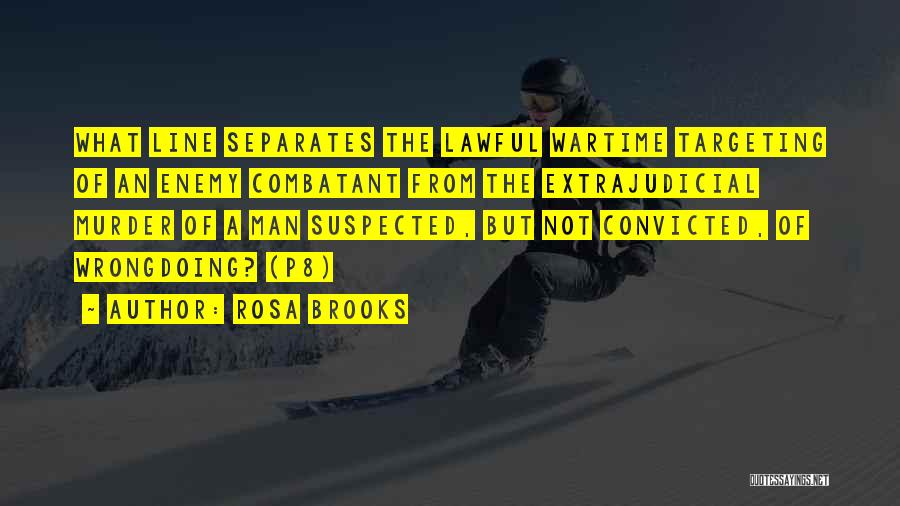
What line separates the lawful wartime targeting of an enemy combatant from the extrajudicial murder of a man suspected, but not convicted, of wrongdoing? (p8) — Rosa Brooks

Building relationships on a global scale requires putting human beings on the ground in regions all over the world - and only the Army has the manpower to do this. — Rosa Brooks

We prefer to imagine brutal wars and atrocities as events that "just happen" every now and then, much like tornadoes or lightning strikes; this metaphor suggests that we can't generalize from them, since they are radically discontinuous with ordinary life. But wars and atrocities do not "just happen": societies and individuals slide into them, little by little, one tiny decision or omission at a time. (p214) — Rosa Brooks
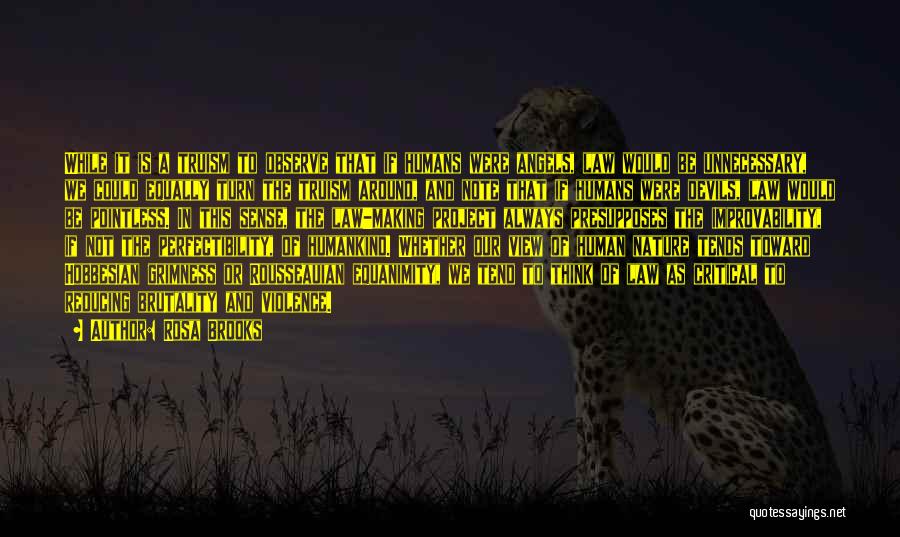
While it is a truism to observe that if humans were angels, law would be unnecessary, we could equally turn the truism around, and note that if humans were devils, law would be pointless. In this sense, the law-making project always presupposes the improvability, if not the perfectibility, of humankind. Whether our view of human nature tends toward Hobbesian grimness or Rousseauian equanimity, we tend to think of law as critical to reducing brutality and violence. — Rosa Brooks
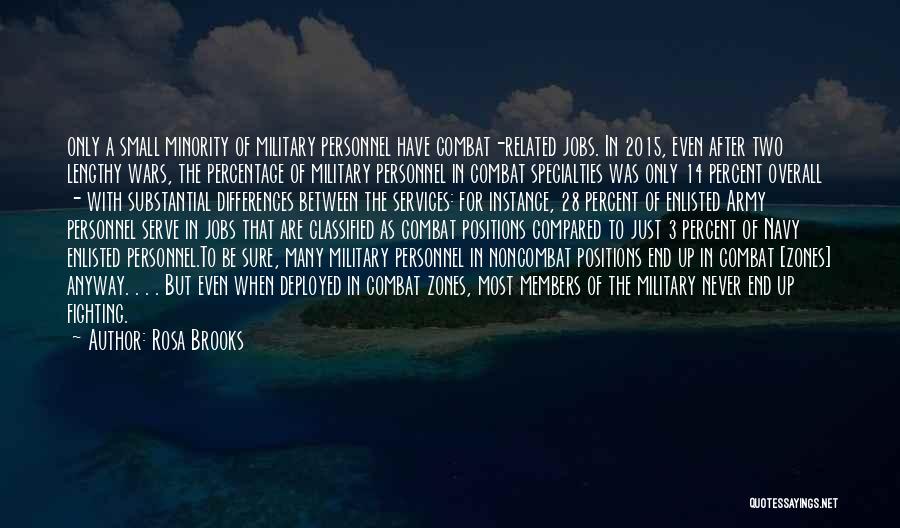
only a small minority of military personnel have combat-related jobs. In 2015, even after two lengthy wars, the percentage of military personnel in combat specialties was only 14 percent overall - with substantial differences between the services: for instance, 28 percent of enlisted Army personnel serve in jobs that are classified as combat positions compared to just 3 percent of Navy enlisted personnel.
To be sure, many military personnel in noncombat positions end up in combat [zones] anyway. . . . But even when deployed in combat zones, most members of the military never end up fighting. — Rosa Brooks
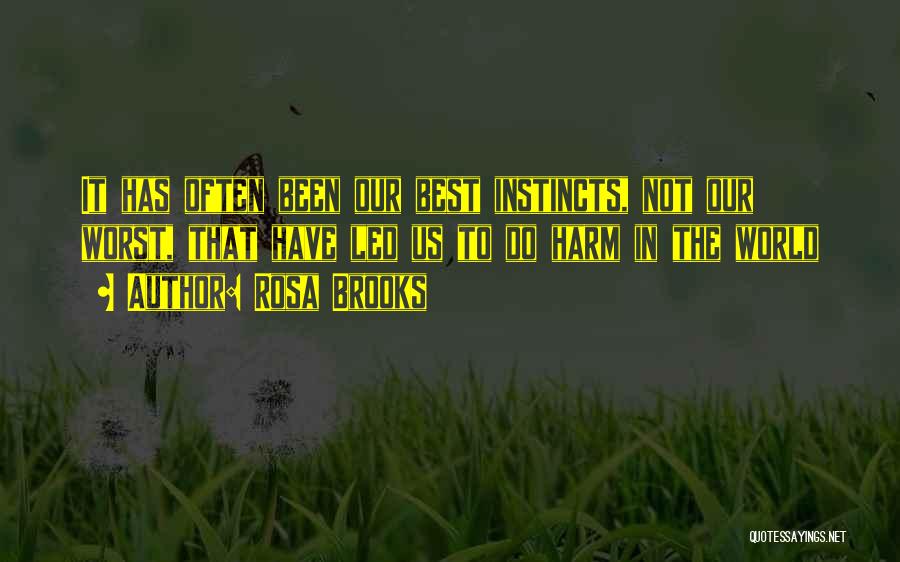
It has often been our best instincts, not our worst, that have led us to do harm in the world — Rosa Brooks
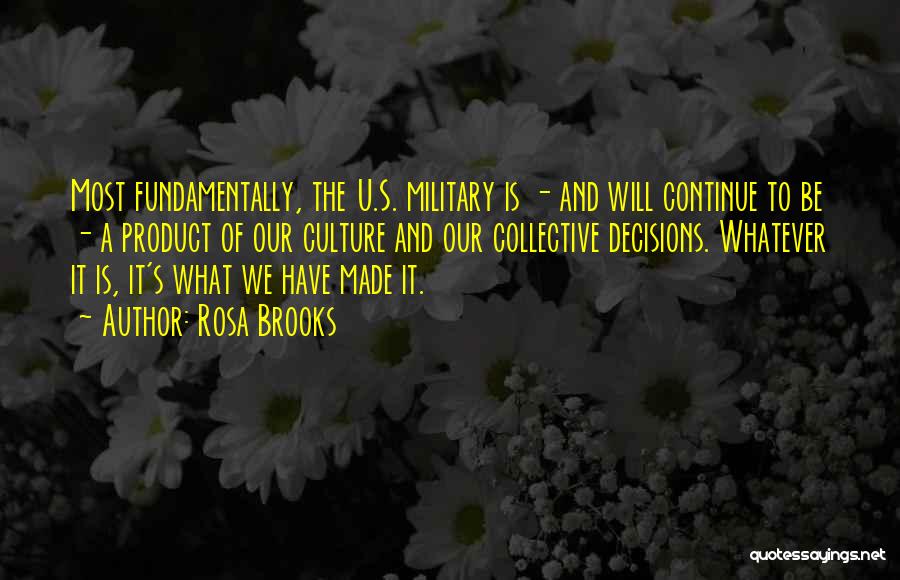
Most fundamentally, the U.S. military is - and will continue to be - a product of our culture and our collective decisions. Whatever it is, it's what we have made it. — Rosa Brooks
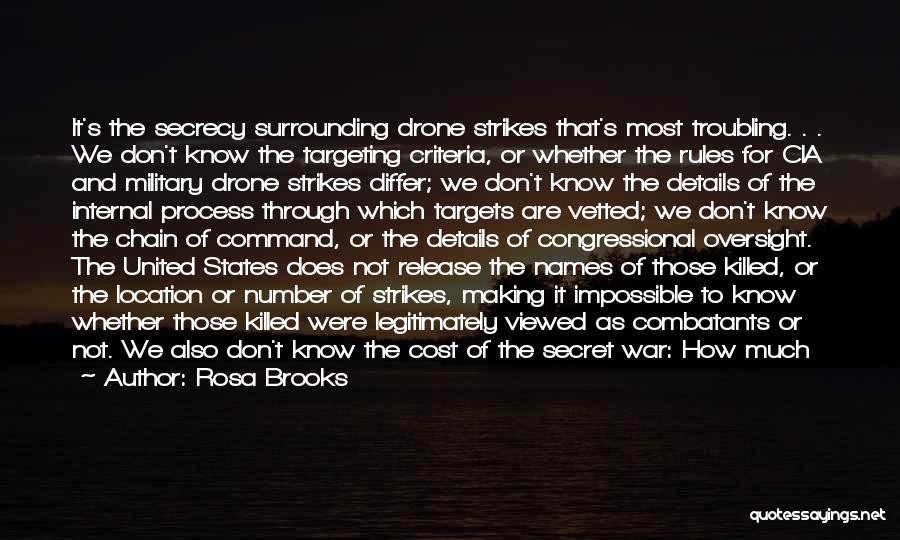
It's the secrecy surrounding drone strikes that's most troubling. . . We don't know the targeting criteria, or whether the rules for CIA and military drone strikes differ; we don't know the details of the internal process through which targets are vetted; we don't know the chain of command, or the details of congressional oversight. The United States does not release the names of those killed, or the location or number of strikes, making it impossible to know whether those killed were legitimately viewed as combatants or not. We also don't know the cost of the secret war: How much money has been spent on drone strikes? What's the budget for the related targeting and intelligence infrastructures? How is the government assessing the costs and benefits of counterterrorism drone strikes? That's a lot of secrecy for a targeted killing program that has reportedly caused the deaths of several thousand people. (117-118) — Rosa Brooks
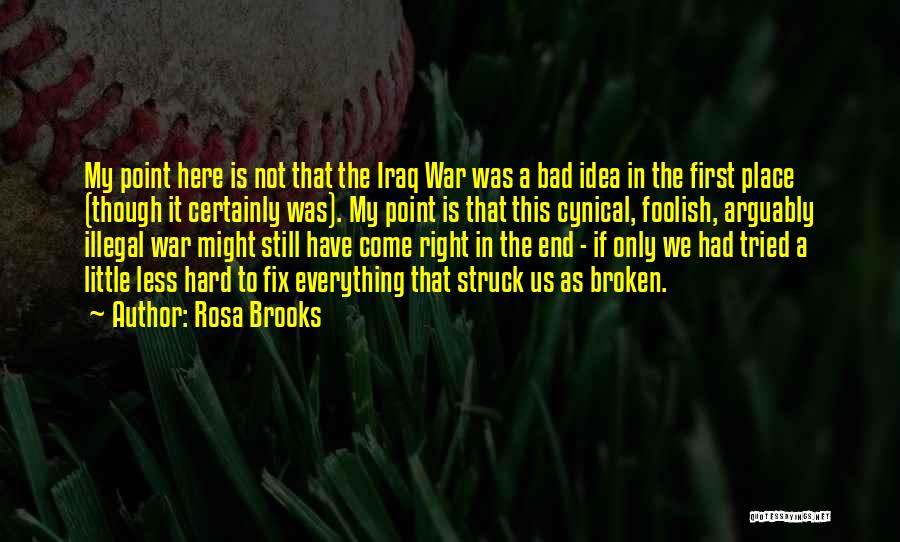
My point here is not that the Iraq War was a bad idea in the first place (though it certainly was). My point is that this cynical, foolish, arguably illegal war might still have come right in the end - if only we had tried a little less hard to fix everything that struck us as broken. — Rosa Brooks
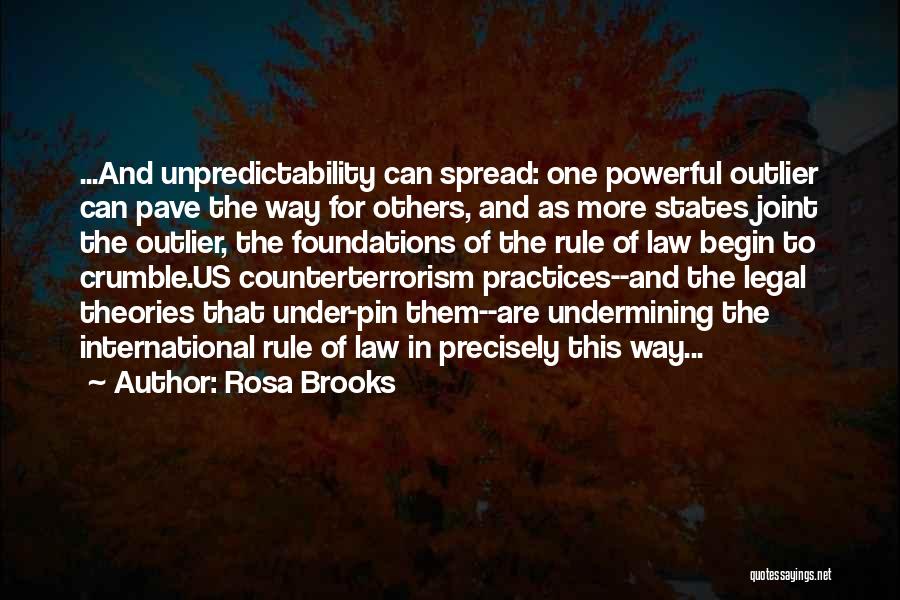
...And unpredictability can spread: one powerful outlier can pave the way for others, and as more states joint the outlier, the foundations of the rule of law begin to crumble.
US counterterrorism practices--and the legal theories that under-pin them--are undermining the international rule of law in precisely this way... — Rosa Brooks
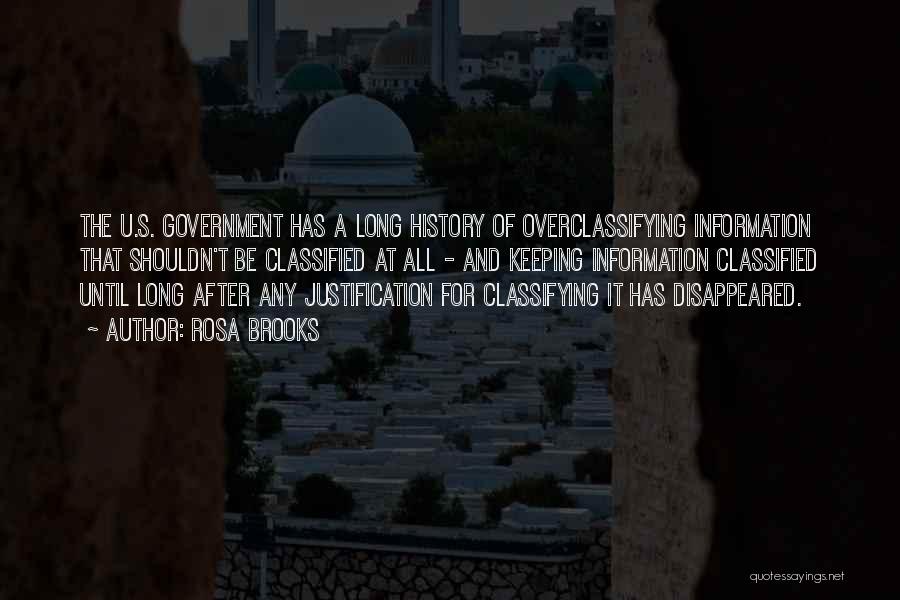
the U.S. government has a long history of overclassifying information that shouldn't be classified at all - and keeping information classified until long after any justification for classifying it has disappeared. — Rosa Brooks
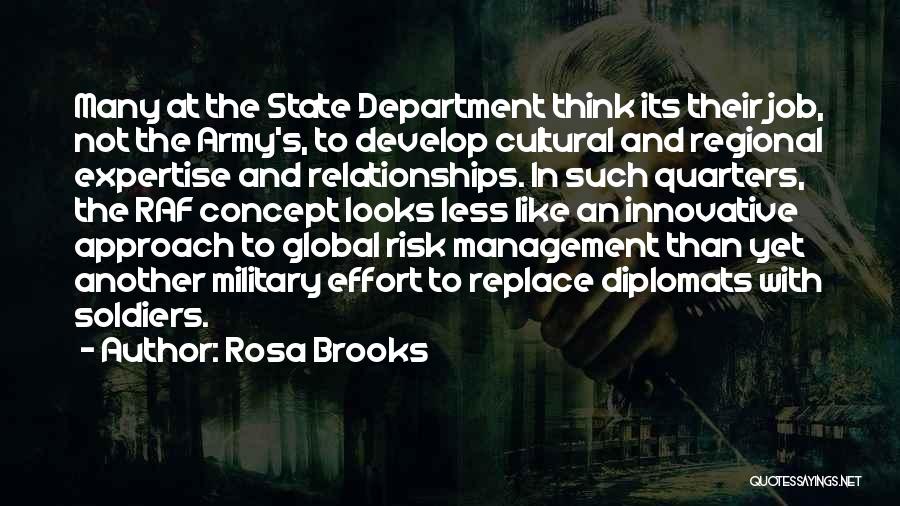
Many at the State Department think its their job, not the Army's, to develop cultural and regional expertise and relationships. In such quarters, the RAF concept looks less like an innovative approach to global risk management than yet another military effort to replace diplomats with soldiers. — Rosa Brooks
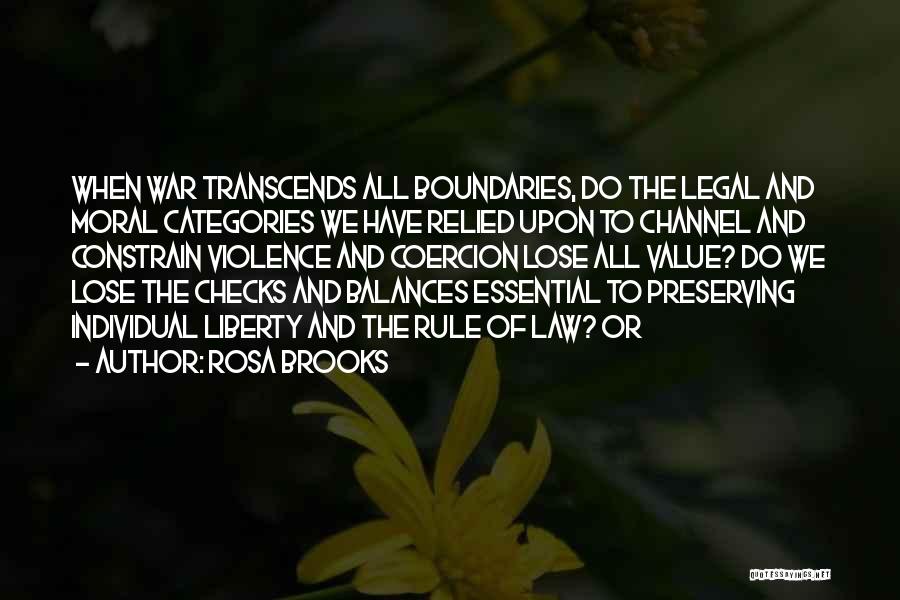
When war transcends all boundaries, do the legal and moral categories we have relied upon to channel and constrain violence and coercion lose all value? Do we lose the checks and balances essential to preserving individual liberty and the rule of law? Or — Rosa Brooks
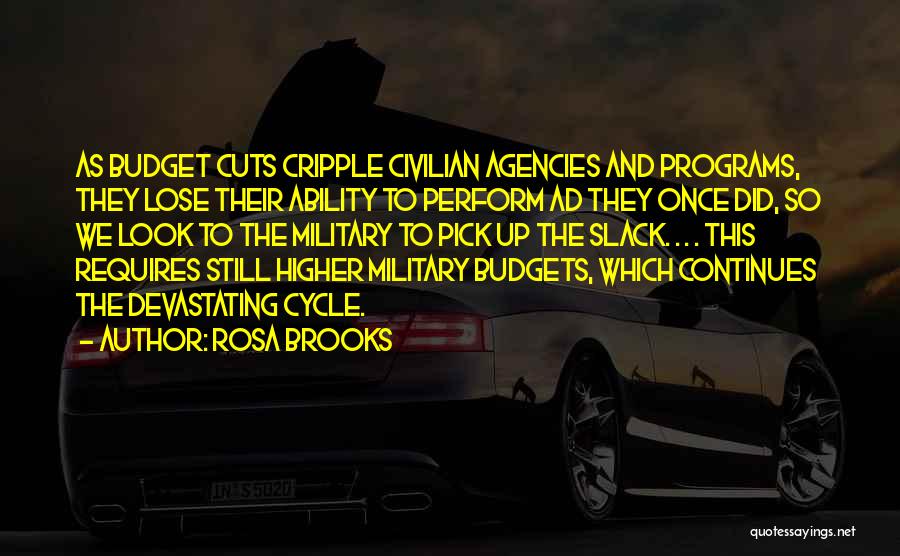
As budget cuts cripple civilian agencies and programs, they lose their ability to perform ad they once did, so we look to the military to pick up the slack. . . . This requires still higher military budgets, which continues the devastating cycle. — Rosa Brooks
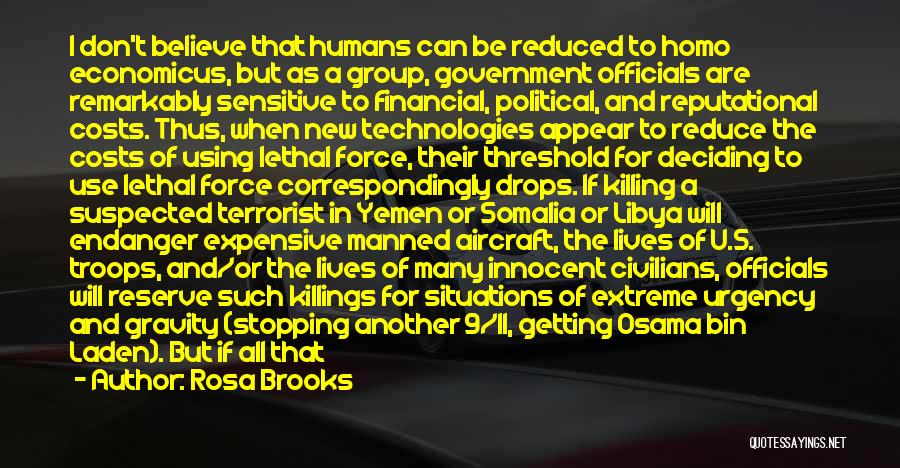
I don't believe that humans can be reduced to homo economicus, but as a group, government officials are remarkably sensitive to financial, political, and reputational costs. Thus, when new technologies appear to reduce the costs of using lethal force, their threshold for deciding to use lethal force correspondingly drops.
If killing a suspected terrorist in Yemen or Somalia or Libya will endanger expensive manned aircraft, the lives of U.S. troops, and/or the lives of many innocent civilians, officials will reserve such killings for situations of extreme urgency and gravity (stopping another 9/11, getting Osama bin Laden). But if all that appears to be at risk is a an easily replaceable drone, officials will be tempted to use lethal force more and more casually. — Rosa Brooks





